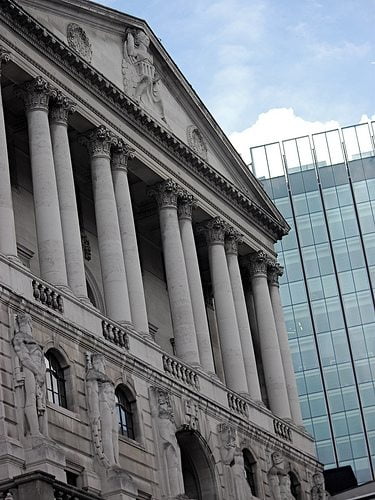

Economy
Stranded assets and climate change on Bank of England agenda
The Bank of England has acknowledged that climate change could have an impact on the financial markets in a research agenda. The paper also notes that the move to a low-carbon economy could leave fossil fuel assets ‘stranded’.
The discussion paper – One Bank Research Agenda – aims to improve the coordination and openness of the Bank’s research.
The research agenda states, “Fundamental changes in the environment could affect economic and financial stability and the safety and soundness of financial firms, with clear potential implications for central banks.”
So far the Bank’s work in this area has primarily focussed on how insurance firms can adapt to the effects of climate change given the likely increasing frequency of extreme weather events. However, the latest papers notes the “impact of environmental change is not limited to the insurance industry”.
The Bank of England highlights two areas where climate change may have an impact on the financial sector. The first is the implications of physical changes in the environment, such as future changes in climate or related issues of resource scarcity, on financial stability and policyholder protection. Considering how these events could be translated into financial impacts on when they will occur is considered key.
The second aspect involves how change to public policy to address environmental risks could affect the financial system.
“Could rapid improvements in renewable energy technology, such as energy storage, or the introduction of new financial instruments to mange environmental risk, affect the financial markets? Is there a risk that carbon-intensive assets may become ‘stranded’ as part of a low carbon transition?” the research agenda says.
The concept of unburnable carbon and stranded assets in the financial world was introduced a few years ago and is now being considered by a range of financial institutions, such as investment banks and pension funds.
James Laeton, research director at the Carbon Tracker Initiative, commented, “Having engaged with the Bank of England around stranded assets and climate risk for several years, it is encouraging to see this major central bank seeing the need to move with the times and understand its role in dealing with one of the major challenges facing our economies today: climate change.
“We hope to see other financial regulators around the world responding in a similar fashion and collaborating on the issue.”
The Bank of England also states that it is important to examine links between central bank polices and environmental risks, such as whether enhanced risk disclosure and reporting environmental risks would be beneficial.
Photo: Rev Stan via Flickr
Further reading:
Bank of England to assess ‘carbon bubble’ risk
Bank of England says plastic banknotes will be in circulation by 2016
Bank of England to manage financial services security check
Bank of England raises climate change concerns with insurers
Financial resilience not enough to restore confidence in banking sector, says BoE


 Environment11 months ago
Environment11 months agoAre Polymer Banknotes: an Eco-Friendly Trend or a Groundswell?

 Features10 months ago
Features10 months agoEco-Friendly Cryptocurrencies: Sustainable Investment Choices

 Features11 months ago
Features11 months agoEco-Friendly Crypto Traders Must Find the Right Exchange

 Energy10 months ago
Energy10 months agoThe Growing Role of Solar Panels in Ireland’s Energy Future




























